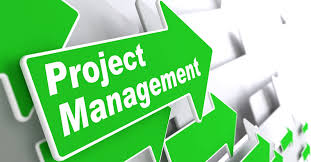What’s included in PM training?
When you attend traditional training you might learn how to identify and manage issues, estimate and manage budgets, identify and treat risks, schedule tasks and resources, manage project quality, and identify lessons learned. You might even learn the latest project management methodology or use the latest project management software.
That seems like a lot to learn. But will this equip you to deal with the vagaries of the human element of project management?
Other essential project management skills
What they don’t teach you in traditional project management training are the skills that experienced, seasoned project managers learn on the job over many years of dealing with people and solving project problems. It’s mostly to do with the most difficult element of project work – human beings.
Veteran project managers are able to articulate business and technical needs and convince others to take required action. They can solve interpersonal problems and eliminate project roadblocks.
In addition to the essential technical knowledge on planning and implementing projects they need good skills in interpersonal communincation, team building, relationship management and most importantly – written skills.
Great PMs communicate well
Typical project managers and team members spend a lot of time planning, organising, doing and fixing but often what is neglected is communication. In project work the effective exchange of ideas is vitally important to success. Without project communication nobody knows what to do because the very nature of projects is that they are new.
Almost everyone believes they communicate well but there are specific skills essential to project success. These are: listening – to recognise developing risks and identify ideas for better ways to do things; negotiation – compromising and collaborating with others to achieve results; developing relationships – working with people at all levels so that they deliver what they need to when it’s required ; managing conflict – making sure that everyone is comfortable with their roles and what they and others need to do;
Experienced PMs know how to build co-operative teams
Team leadership skills are quite broad but are vital to project success. Project managers need to be able to: recruit the right people and develop their skills; establish a vision and set goals; make the most of unique individual skills; build and motivate the team; manage personalities; develop and maintain sound team processes; facilitate continuous communication flow and information sharing; encourage team bonding; manage anxiety and expectations, build trust and rapport and elicit support when required.
Relationship management
Anyone who participates in the project or is impacted by its results is a stakeholder. Stakeholders (internal and external) have the potential to support you to achieve an exception outcome or bring a project undone. Project success and failure is directly impacted by the way stakeholders perceive the value created by the project, their expectations and how well they relate with the project team.
The capability and willingness of project managers to effectively manage stakeholder relationships will ultimately determine project success.
The more successful a project manager is in their career, the more people their decisions will impact on. These people could be strong proponents of the project work, or they could block it altogether. Stakeholders often need to be won over for the project to move forward and need to be kept engaged.
It should not be forgotten that each stakeholder has an essential contribution to make and all stakeholder expectations need to be met. That is why the skill to develop and maintain relationships is so vital.
Writing skills
You might think that with the advent of technology, writing is not needed for project management jobs. Not true. Often a project manager will need to gain approval and support for any project they undertake. Approval is most often sought through written proposals, which must be credible and persuasive. Once a project is underway, there are will be writing tasks associated with it. There will be meeting minutes, background documents, presentations and progress reports. Even spelling out job descriptions requires clear written communication to avoid misinterpretation.
For larger projects you might need to develop briefs for contractors or suppliers. Senior project managers usually work with people at senior levels in organisations. To communicate at that level they need well-honed skills in persuasive writing and written analysis of ideas.
Skills are developed through a combination of training, work experience and mentoring from experts who have applied those skills in the real world and achieved success. Our seasoned experts at Transformed help organisations and individuals to build their project management capability.






